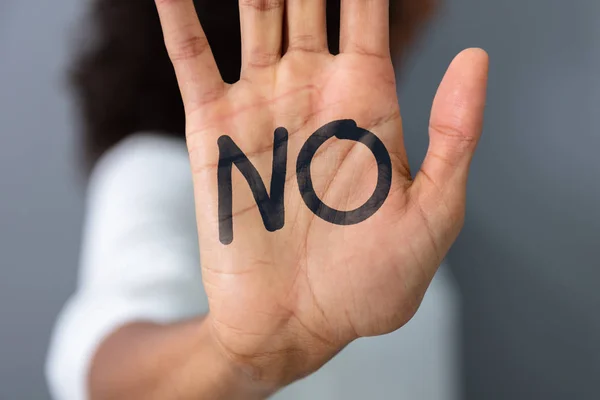Vietnam is a stunning country full of charm—bustling markets, peaceful temples, delicious street food, and warm-hearted people. But like every culture, Vietnam has its own rules of etiquette. What might seem like a small action to you could be considered offensive to locals.
To help you make the most of your trip (without unintentionally offending anyone), here are 9 things you should avoid doing in Vietnam:
1. Don’t Touch Anyone’s Head
In Vietnamese culture, the head is considered sacred—the highest and most spiritual part of the body. Touching someone’s head, even a child’s, can come off as disrespectful.
What to do instead: Offer a warm smile or wave. Avoid ruffling hair, especially with people you don’t know well.
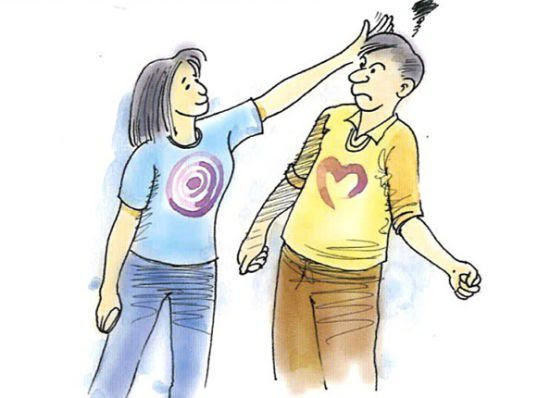
2. Don’t Point Your Feet at People or Sacred Places
Feet are considered the “lowest” and dirtiest part of the body. Pointing them toward people, altars, or Buddha statues is seen as rude.
What to do instead: When sitting, cross your legs politely or tuck your feet behind you, especially in temples or someone’s home.
3. Don’t Wear Revealing Clothes in Temples
While casual dress is fine in many areas, it’s important to dress modestly in religious sites. Wearing shorts, tank tops, or crop tops into a pagoda or temple is considered disrespectful.
What to do instead: Always carry a scarf or light cover-up to use when needed. Cover your shoulders and knees before entering sacred places.
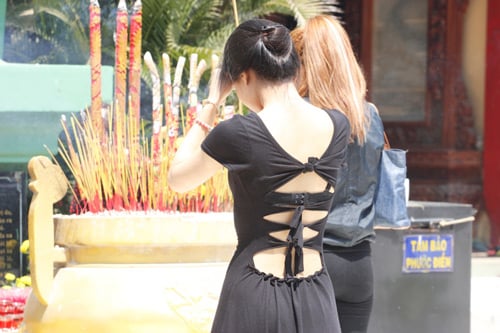
4. Don’t Lose Your Temper in Public
Raising your voice or showing anger is considered a “loss of face” in Vietnam. Locals tend to handle conflict quietly or indirectly.
What to do instead: Stay calm, speak gently, and smile—even if something goes wrong. A cool head earns respect here.

5. Don’t Take Photos Without Permission
Whether it’s a local vendor, monk, or child—don’t point your camera without asking. Some people are uncomfortable being photographed.
What to do instead: Use a friendly smile and ask with a simple, “Photo okay?” A little respect goes a long way.

6. Don’t Leave Chopsticks Standing in a Bowl of Rice
This looks similar to incense sticks used during funerals and is seen as a symbol of death or bad luck.
What to do instead: Place chopsticks neatly on the chopstick rest or across the bowl when not in use.
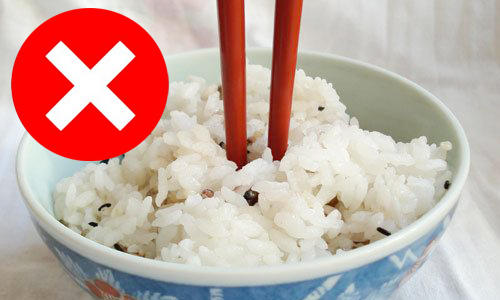
7. Don’t Publicly Criticize Vietnam
Avoid negative comments about the government, culture, or local customs. What seems like casual opinion to you may feel offensive to locals.
What to do instead: Focus on asking questions and showing curiosity. Locals appreciate visitors who want to learn.
8. Don’t Bargain Aggressively
Yes, bargaining is normal in Vietnamese markets, but pushing too hard—especially over a few thousand dong—can feel disrespectful.
What to do instead: Negotiate with a smile. If the price doesn’t work for you, politely thank them and walk away.
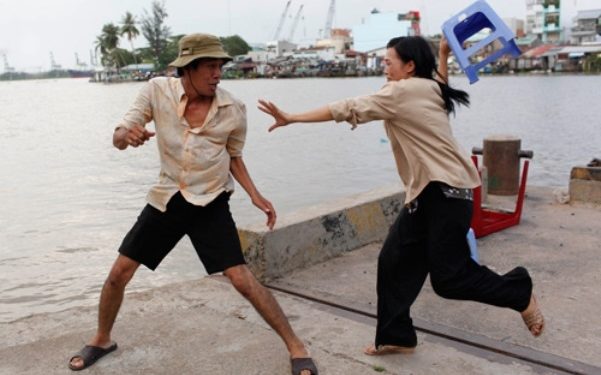
9. Don’t Touch Sacred Objects
Religious items like Buddha statues, offerings, or altar decorations are not meant to be touched or moved.
What to do instead: Observe first. If you’re unsure, watch what the locals do—or ask before participating in temple activities.
Final Note
Traveling respectfully is more than just good manners—it’s a bridge to meaningful cultural experiences. By avoiding these common taboos, you’ll connect more deeply with locals and show appreciation for Vietnam’s rich heritage.

